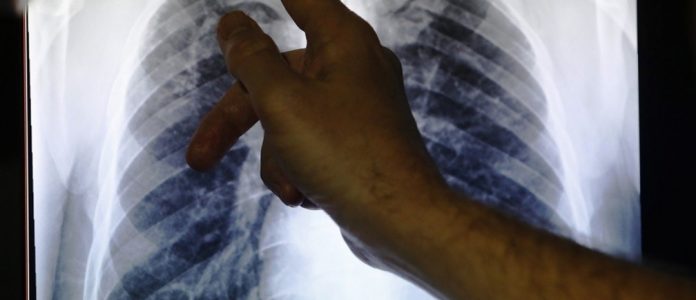Young people are at risk of falling seriously unwell with tuberculosis and spreading the disease. Therefore, researchers at Karolinska Institutet in Sweden, among others, have mapped key factors that affect the treatment outcomes in 10- to 24-year-olds with tuberculosis in Brazil, where the disease is increasing. To deal with the global tuberculosis epidemic, researchers say that greater focus is needed on this age group in tuberculosis programs. The study is published in The Lancet Global Health.
Before the COVID-19 pandemic, tuberculosis (TB) was the leading cause of death from a single infectious agent globally. It’s a disease that affects those who are socially and economically vulnerable. An estimated 1.8 million young people develop tuberculosis each year, comprising 17 percent of all new cases globally.
“Young people experience a substantial burden of tuberculosis, which can also have an impact on the disease spread – but this age group is often neglected in tuberculosis programs,” says lead author Louisa Chenciner, an internal medicine doctor working in the NHS (National Health Service), UK, who undertook this research as part of her master’s thesis at Karolinska Institutet. “They tend to have wider social networks, whether at work, school, with family or friends, and may therefore contribute to active transmission of TB in their community. To address the global TB epidemic, we need to better understand factors implicated in adverse treatment outcomes for young people.”
She was part of an international research group that has published a national cohort study of more than 40,000 young people (10–24 years old) with tuberculosis in Brazil, where the TB incidence rates are rising. The aim was to evaluate key health and social factors associated with adverse treatment outcomes and the role of social protection strategies for this age group.
“Almost one-fifth of the study population experienced adverse treatment outcomes – falling behind the World Health Organization (WHO) End TB Strategy,” says co-author Kristi Sidney Annerstedt, assistant professor at the WHO Collaborating Centre on Tuberculosis and Social Medicine at the Department of Global Public Health, Karolinska Institutet. “This indicates that young people need greater attention in national and international tuberculosis programs.”
A disproportionate number of young people with tuberculosis were detained in prisons or juvenile detention centres. More than half had lesser educational attainment than their peers. Race also affected treatment outcomes, and factors such as poverty, HIV, homelessness and drug use were associated with adverse outcomes.
There were disparities in the treatment support received by young people, with approximately half receiving adequate tuberculosis treatment supervision and one third undergoing complete contact tracing. The few young people who were enrolled in government cash transfers, including Programa Bolsa Família, were less likely to experience adverse outcomes.
“To our knowledge this study is the first nationally representative analysis of the characteristics of young people with TB in Brazil. Previously, there was little evidence on the health and social factors that could be associated with unfavourable treatment outcomes in this sometimes underserved group,” says Tom Wingfield, a researcher at the Liverpool School of Tropical Medicine, UK, and Karolinska Institutet. He is joint last author together with Julia M Pescarini at the London School of Hygiene and Tropical Medicine, UK, and the Centre for Data and Knowledge Integration for Health (Cidacs) at the Gonçalo Moniz Institute of the Oswaldo Cruz Foundation, Brazil.








